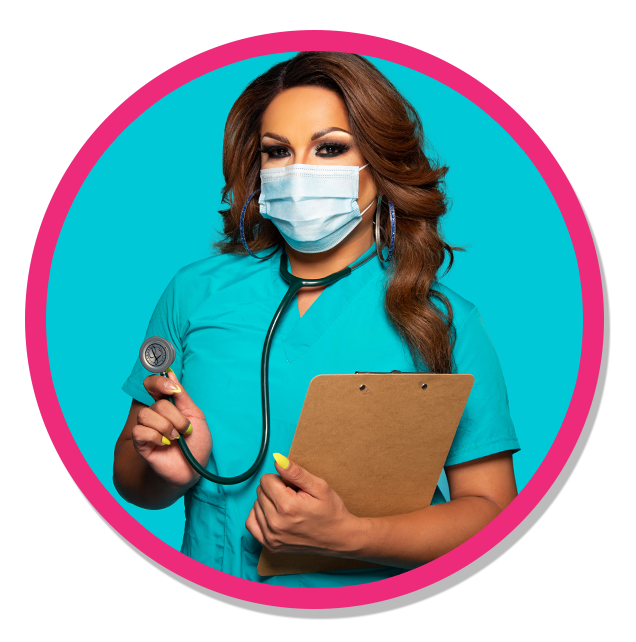
WHAT IS PEP?
PEP, or post-exposure prophylaxis, is a short course of HIV medicines taken very soon after a possible exposure to HIV to prevent the virus from taking hold in your body.
You must start it within 72 hours after you were exposed to HIV, or it won’t work. Every hour counts.
PEP should be used only in emergency situations. It is not meant for regular use by people who may be exposed to HIV frequently.
How Do I Know If I Need PEP?
If you are HIV-negative and you think you may have been recently exposed to HIV, contact your health care provider immediately or go to an emergency room right away.
You may be prescribed PEP if you are HIV-negative or don’t know your HIV status, and in the last 72 hours you:
- Think you may have been exposed to HIV during sex (for example, you had a condom break)
- Shared needles or works to prepare drugs
- Were sexually assaulted
Your health care provider or emergency room doctor will evaluate you and help you decide whether PEP is right for you.
In addition, if you are a health care worker, you may be prescribed PEP after a possible exposure to HIV at work, such as from a needlestick injury.
How Long Do I Need to Take PEP?
If you are prescribed PEP, you will need to take the HIV medicines every day for 28 days.
You will also need to return to your health care provider at certain times while taking PEP and after you finish taking it for HIV testing and other tests.
How Well Does PEP Work?
PEP is effective in preventing HIV infection when it’s taken correctly, but it’s not 100% effective. The sooner you start PEP after a possible HIV exposure, the better.
While taking PEP, it’s important to keep using other HIV prevention methods, such as using condoms the right way every time you have sex and using only new, sterile needles and works when injecting drugs.
Does PEP Cause Side Effects?
The HIV medicines used for PEP may cause side effects in some people. These side effects can be treated and aren’t life-threatening.
If you are taking PEP, talk to your health care provider if you have any side effect that bothers you or that does not go away.
PEP medicines may also interact with other medicines that a person is taking (called a drug interaction). For this reason, it’s important to tell your health care provider about any other medicines that you take.
Can I Take PEP Every Time I Have Unprotected Sex?
No. PEP should be used only in emergency situations. It is not intended to replace regular use of other HIV prevention methods. If you feel that you might be exposed to HIV frequently, talk to your health care professional about PrEP.
How Can I Pay for PEP?
- If you’re prescribed PEP after a sexual assault—You may qualify for partial or total reimbursement for medicines and clinical care costs through the Office for Victims of Crime, funded by the U.S. Department of Justice (see the contact information for each state).
- If you’re prescribed PEP for another reason and you cannot get insurance coverage (Medicaid, Medicare, private, or employer-based)—Your health care provider can apply for free PEP medicines through the medication assistance programs run by drug manufacturers. These can be handled urgently in many cases to avoid a delay in getting medicine.
- If you’re a health care worker who was exposed to HIV on the job—Your workplace health insurance or workers’ compensation will usually pay for PEP.












